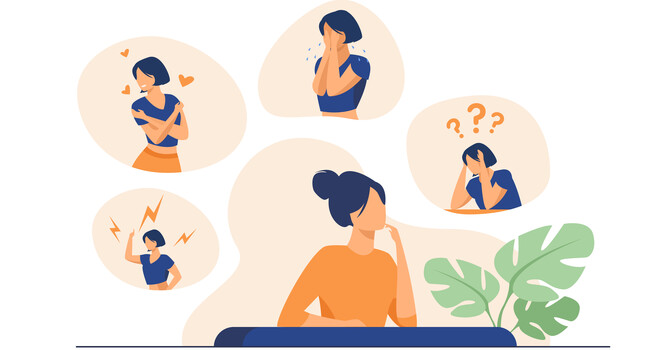
LinkedIn has become an essential tool for networking, job hunting, and professional development. But as it grows, so does its psychological impact. Unlike Instagram or Facebook, where social status is often measured in lifestyle and appearances, LinkedIn reflects our career status, and the pressure to "keep up" professionally is no less intense.
In this blog, we examine how LinkedIn contributes to anxiety, impostor syndrome, and work-related burnout, and offer strategies to use the platform more mindfully.
LinkedIn as a Mirror of Professional Identity
Every post, title update, and job anniversary on LinkedIn signals something about our career trajectory. For some, it provides motivation and inspiration. For others, it becomes a constant reminder of where they "should" be. The pressure to appear professionally successful at all times can lead to heightened stress and feelings of inadequacy.
Unlike other platforms, LinkedIn's emphasis on achievements, promotions, and accolades encourages a performance mindset. Users may hesitate to share career struggles or failures, leading to a skewed sense of what professional life actually looks like.
The Comparison Trap in Professional Spaces
Just as Instagram fosters appearance-based comparison, LinkedIn fosters achievement-based comparison. Seeing peers celebrate promotions, keynote talks, or multi-million-dollar fundraising can lead to feelings of being "left behind."
This pressure can be particularly challenging for early-career professionals, career changers, or anyone navigating personal hardships. It reinforces the myth that everyone else is constantly thriving, which undermines self-esteem and increases anxiety.
The Productivity Myth and Constant Growth Culture
LinkedIn often glorifies hustle culture and continuous self-improvement. The constant updates about certifications, new ventures, and 5:00 a.m. productivity hacks can create an unrealistic standard of performance.
This myth of constant growth feeds into burnout. When rest and reflection are seen as unproductive or weak, professionals push themselves harder, sacrificing mental and emotional health in the process.
Imposter Syndrome in the Digital Workplace
LinkedIn can amplify imposter syndrome—the belief that you are a fraud and will be "found out" despite evidence of competence. When surrounded by posts that showcase only success, it becomes difficult to recognize that others struggle too.
This sense of inadequacy can lead to avoidance behaviours, missed opportunities, and reluctance to reach out for support or mentorship.
How to Use LinkedIn Mindfully and Protect Your Mental Health
1. Be Intentional About Your Use
Before logging on, ask yourself what your goal is. Are you networking, researching jobs, or simply scrolling? Aimless browsing increases exposure to unhelpful comparisons.
2. Curate Your Feed
Follow individuals who offer transparency, balance, and real talk about the ups and downs of professional life. You can also mute or unfollow without disconnecting entirely.
3. Celebrate Your Own Wins (Big and Small)
Don’t wait for a promotion to feel proud. A successful presentation, personal insight, or milestone in a tough week counts, too.
4. Take Breaks from the Platform
Just like any social media platform, LinkedIn can be overwhelming. Set boundaries around how often you check it and during what times of day.
5. Seek Support When Needed
If feelings of inadequacy or burnout persist, talk to a therapist or career counsellor. You don’t have to navigate digital pressures alone.
When LinkedIn Stops Being Helpful
You might need a break from LinkedIn if:
-
You log off feeling worse than before
-
You’re obsessively checking others' profiles
-
You avoid posting because you feel like you’re not "enough."
-
You experience heightened anxiety or burnout after using it
Remember, your professional worth isn’t measured in likes, titles, or timelines.
Final Thoughts
LinkedIn can be a powerful tool for connection and career growth, but it can also contribute to psychological strain when used without mindfulness. By recognizing its influence on our mental health, we can take intentional steps to protect our well-being while still engaging professionally.
It's okay to grow slowly. It's okay to take breaks. And it's okay to be proud of your journey—even when it's not trending.
.JPEG)
.JPEG)




